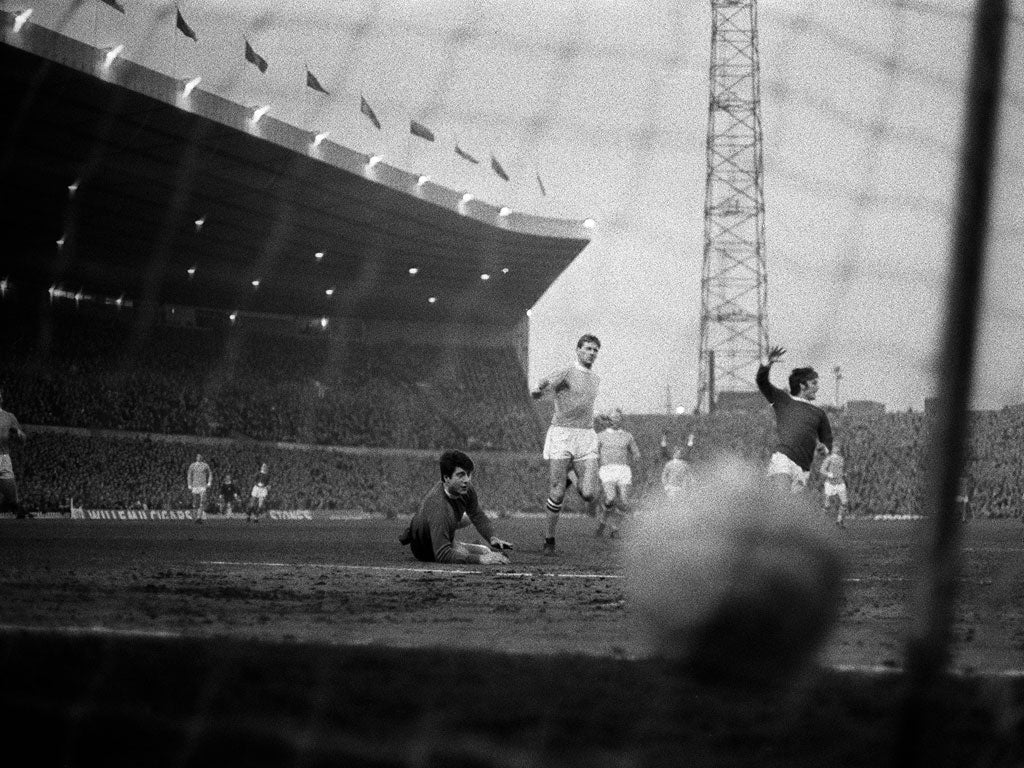Ferguson is right: this is the most important Manchester derby yet
George Best scored in '68 but United lost to City in that title duel. Denis Law back-heeled them down in '74. Ian Herbert savours the history

Your support helps us to tell the story
From reproductive rights to climate change to Big Tech, The Independent is on the ground when the story is developing. Whether it's investigating the financials of Elon Musk's pro-Trump PAC or producing our latest documentary, 'The A Word', which shines a light on the American women fighting for reproductive rights, we know how important it is to parse out the facts from the messaging.
At such a critical moment in US history, we need reporters on the ground. Your donation allows us to keep sending journalists to speak to both sides of the story.
The Independent is trusted by Americans across the entire political spectrum. And unlike many other quality news outlets, we choose not to lock Americans out of our reporting and analysis with paywalls. We believe quality journalism should be available to everyone, paid for by those who can afford it.
Your support makes all the difference."This was the night when the balance of power swung to Manchester City..." Such pronouncements have become a part of the modern vocabulary of Manchester derbies and will be issued once again, seven days from now, if Manchester United lose at the Etihad Stadium. Yet those words were penned 44 years ago by the reporter Ronald Crowther after one of many occasions which challenge the claim, bolstered by Sir Alex Ferguson on Sunday, that next Monday will deliver the biggest Manchester derby ever staged.
As the 1967-68 season moved into its finale, which Crowther was writing about, Ferguson was hardly paying attention: he was in a Rangers side in the throes of being caught up by Celtic, presaging the end of his own unhappy period at Ibrox.
But down in Manchester, City and United met under floodlights on 27 March 1968 for what has remained the only clash in which the two have fought for domestic supremacy.
City's 3-1 win took them level on points with United, the reigning champions, then tying on points with Leeds United at the top. City were the arrivistes, only just promoted from the Second Division in 1966, yet displaying title quality with the likes of Colin Bell, Francis Lee and Mike Summerbee.
It feels like a lifetime ago, now. Two of the '68 game's opponents, United's George Best and Summerbee, were such close friends that they bought a flat together. But the intensity of the match – rearranged under lights because the Old Trafford pitch had been waterlogged – was fierce. City conceded in the first minute but goals from Bell, George Heslop and Lee enabled them to pip United to the title by two points.
"A hugely significant moment," says the historian and City specialist Gary James, whose book Manchester The City Years is published in September (www.manchesterfootball.org). "United were the power, City were coming up on the outside."
So how does that decider rank with this one? Well, there were nine games still to go in '68. This time there will be just two – making a minimal safety net for the losers. It will be unbearably tense.
That City have not won the title since 1968 is why, in his own analysis of the world's great derby matches, More Than A Game, the journalist Andy Mitten does not even feature the Manchester clashes, deeming United v City to have been too much of a mismatch to qualify, while United v Liverpool does.
But since 2008, when City entered Abu Dhabi ownership, the clash has met his criteria. "For years, City did not keep their part of the deal," Mitten says. "If I was writing my book again, they would certainly be in it. And now, yes, this is the biggest Manchester derby ever. It could only be bigger if the two teams were playing in the European Cup final."
For many, significance is just about silverware. The derby of 24 April 1974 in which Denis Law relegated his old club United to the Second Division – "like a son turning off his father's life-support machine," as one observer later described it – was of more importance to both clubs than is generally appreciated.
City, 14th heading into that game, would have been a solitary point above the drop zone had they lost: it was actually a relegation six-pointer. And their grim 0-0 at Maine Road a month earlier saw referee Clive Thomas send off Mike Doyle and Lou Macari, who both refused to leave the field. Thomas took off both sides to calm them down. Couldn't happen next Monday, could it?
Join our commenting forum
Join thought-provoking conversations, follow other Independent readers and see their replies
Comments